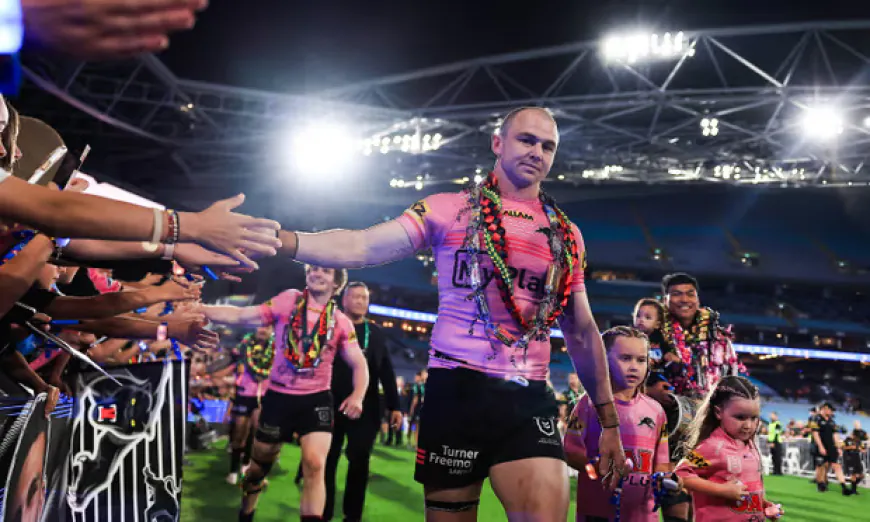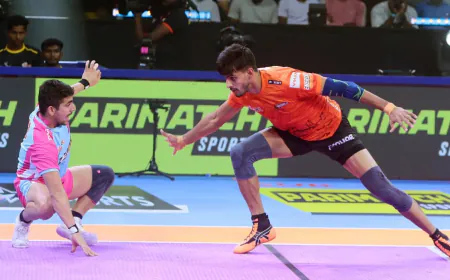Football Codes and Gambling Firms Intensify Lobbying Efforts Against Ad Ban
Inside the Lobbying Campaign One notable aspect of the lobbying effort was a meeting request from RWA, which sought to meet with the prime minister to discuss gambling ad reforms. This meeting request was submitted in March 2024, following which a senior adviser in Albanese’s office suggested an informal meeting near the prime minister’s electorate office in Sydney. After the meeting, RWA expressed its appreciation and reiterated its stance that its members were doing more than required by current regulations to minimize gambling-related harm.

In the months leading up to the football finals, Australia’s National Rugby League (NRL), Australian Football League (AFL), and major betting companies ramped up their efforts to directly influence Prime Minister Anthony Albanese’s office regarding a proposed ban on gambling advertisements. Documents recently tabled in parliament provide insights into these lobbying activities, which aimed to push back against the potential ban.
These documents reveal that the gambling industry’s peak body, Responsible Wagering Australia (RWA), sought to bypass the responsible minister, instead aiming to discuss their concerns with Albanese himself. This revelation comes as the government continues to deliberate on recommendations from a parliamentary inquiry into online wagering and the broader issue of gambling harm in Australia.
Direct Lobbying Efforts Uncovered
The documents, released after a Senate order initiated by independent senator David Pocock, show the concerted efforts made by both the NRL and AFL, along with major wagering companies, to engage directly with the prime minister’s office. Their objective was to shape the government's response to a proposed ban on gambling advertisements, which had gained traction in public discourse.
RWA, in particular, argued that gambling products needed to remain visible to prevent illegal gambling operations from flourishing. In a letter addressed to Albanese, RWA warned that a complete ban on gambling ads could even lead to cheating in sports and racing by creating an unregulated market where illegal activities could thrive. They expressed concerns that the integrity of sports could be compromised if gamblers were pushed towards offshore, unregulated betting platforms.
The prime minister’s office, however, has also met with gambling reform advocates, adding a layer of complexity to the ongoing debates around gambling reform. Reformers argue that the government should prioritize protecting Australians from gambling harm, particularly through stronger regulations on gambling ads.
David Pocock Criticizes Government's Inaction
Senator David Pocock, who pushed for the release of the documents, has been a vocal critic of the government’s approach. He accused the Albanese government of “pandering” to the gambling industry by not acting swiftly to implement a full ban on gambling advertisements. Pocock pointed out that it has been over a year since the recommendations from the Murphy Review—a parliamentary inquiry into online gambling and its harms—were published, yet the government has yet to take decisive action on the issue.
“Australians deserve answers about why the government hasn’t moved to curb the serious harm caused by gambling advertising,” Pocock said in a statement. His comments reflect growing public concern over the influence of the gambling industry and its ability to sway policy decisions.
The documents shed light on the extent to which the betting companies and major football codes sought to engage directly with Albanese’s office from July to September 2024. This period saw increased communication between senior staff in the prime minister’s office and representatives of the gambling industry, highlighting the industry's determination to maintain its advertising privileges.
Inside the Lobbying Campaign
One notable aspect of the lobbying effort was a meeting request from RWA, which sought to meet with the prime minister to discuss gambling ad reforms. This meeting request was submitted in March 2024, following which a senior adviser in Albanese’s office suggested an informal meeting near the prime minister’s electorate office in Sydney. After the meeting, RWA expressed its appreciation and reiterated its stance that its members were doing more than required by current regulations to minimize gambling-related harm.
Similarly, Sportsbet, one of Australia’s largest betting companies, sought to meet with the prime minister’s office to express its views on the inquiry’s recommendations. A senior adviser in Albanese’s office responded positively to this request, and a meeting was arranged for April 2024.
The NRL also became actively involved in the lobbying efforts, with its general manager of government and policy writing to the prime minister’s office in June. The NRL sought a meeting between its CEO, Andrew Abdo, and Albanese at Parliament House to discuss several issues, including wagering reforms. This meeting took place in July, and further correspondence between the NRL and Albanese’s office continued into September.
AFL's Engagement and the Grand Final
The AFL, too, was involved in the discussions, particularly after the conclusion of its grand final in October. In correspondence sent to the prime minister’s office on 1 October, the AFL provided an attachment titled “supplementary AFL submission re alternative wagering advertising regulatory framework.” The document, along with other communications, suggested that the AFL was proposing its own solutions to the advertising ban, which included alternatives to a full prohibition of gambling ads.
Albanese attended both the NRL and AFL grand finals as a guest of the respective codes, further underscoring the close ties between the sporting bodies and the prime minister’s office. These ties have led to some criticism, as Albanese’s attendance at these events raised questions about the influence of the football codes on government decision-making regarding gambling reform.
Concerns Over Offshore Betting and Overregulation
Throughout their lobbying campaign, the betting companies expressed concerns that a ban on gambling ads would lead to unintended consequences. In particular, RWA warned of the risks associated with pushing punters towards offshore betting companies that operate outside Australia’s regulatory framework. They argued that if local gambling options were no longer visible to consumers, it could drive them to unregulated platforms that do not report wagering irregularities or work with sports authorities to maintain the integrity of sports and racing.
RWA proposed alternative solutions, such as “age-gating” ads to ensure they were only shown to users over 18 years old and introducing opt-out options for consumers. They suggested that these measures could be implemented by January 2026 and argued that they would be a more effective approach to reducing gambling harm than an outright ban.
Public Interest Immunity and Missing Correspondence
While the documents provide a clear picture of the intense lobbying efforts by the gambling industry, the government has withheld some materials by claiming public interest immunity. This means that certain pieces of correspondence between the prime minister’s office, betting companies, and football codes were not included in the documents released to the Senate. The decision to withhold this information has only fueled criticism from gambling reform advocates, who argue that the government should be more transparent about its interactions with the gambling industry.
The release of these documents has cast a spotlight on the concerted efforts of the NRL, AFL, and major betting companies to influence government policy on gambling ads. As the Albanese government continues to formulate its response to the online wagering inquiry, it faces pressure from both the gambling industry and reform advocates.
For advocates like David Pocock, the priority is clear: the government must put the wellbeing of Australian communities ahead of the interests of the gambling industry. However, the intense lobbying campaign by the NRL, AFL, and betting companies suggests that the debate over gambling advertising is far from settled.





















































